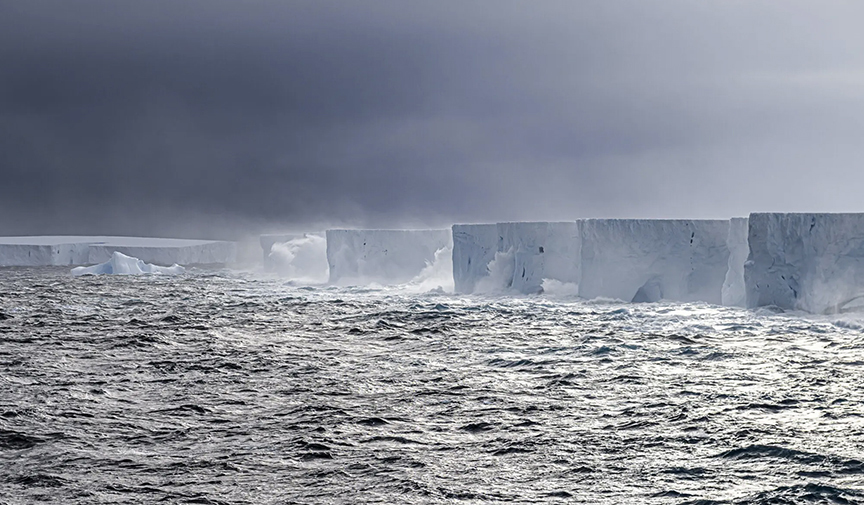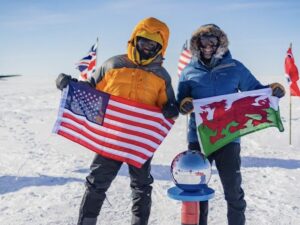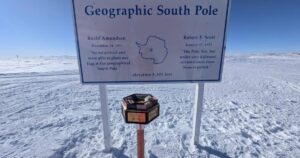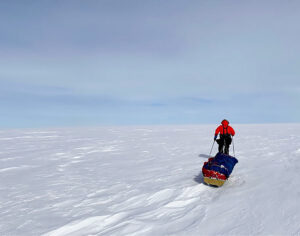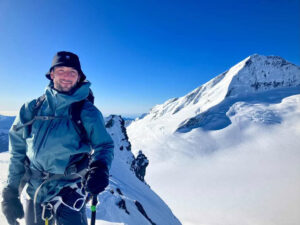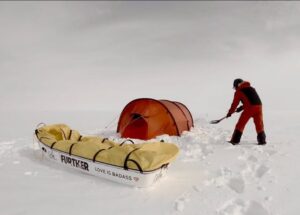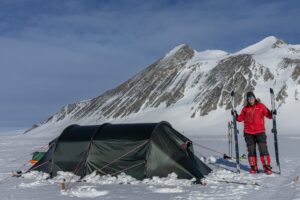Like a canoe caught indefinitely in a recirculating wave, the world’s largest iceberg has been spinning in place for months off the coast of Antarctica — and may continue to do so for years.
Known as A23a, it is the offshoot of an even bigger iceberg that broke off from Antarctica’s Filchner Ice Shelf in 1986. A23a grounded later that year, as icebergs can in shallow water, and remained in place in the Weddell Sea until 2020 when it broke free. It drifted around until December 2023, when it moved away from Antarctica. At this point, the current carries most icebergs into a slightly warmer sea “soup” toward the island of South Georgia, where they slowly melt.

A23a’s course before it became trapped in the vortex. Photo: MODIS. Labels: Antarctic Iceberg Tracking Database
Refuses to die
But A23a became trapped in a vortex called a Taylor column, which forms over sea mountains. Here, the water rotates counterclockwise, like a slow-motion whirlpool.
It’s been rotating excruciatingly slowly for the past four months, about 15˚ a day. Since its entrapment, it’s performed about five full rotations. Scientists aren’t sure how much longer it will continue to do so before the vortex spits it out. It could be months or even years.
“A23a is the iceberg that just refuses to die,” polar expert Mark Brandon of the Open University told the BBC.

Stuck: the iceberg’s current location.
A tabular or flat-topped iceberg, A23a has an area of 4,250 square km, slightly larger than Rhode Island — a state that seems to exist mainly to serve as a size comparison. Its parent berg was initially home to a Soviet research station during the dying days of the USSR. When it broke off from the ice shelf, the researchers hastily fled.
It is unclear how often one of these vortices catches an iceberg as it drifts by, but A23a is not the first. In 2020, another giant berg was snared a little west of A23a’s position, according to The New York Times. It spun in place for months but eventually drifted off to melt away.
